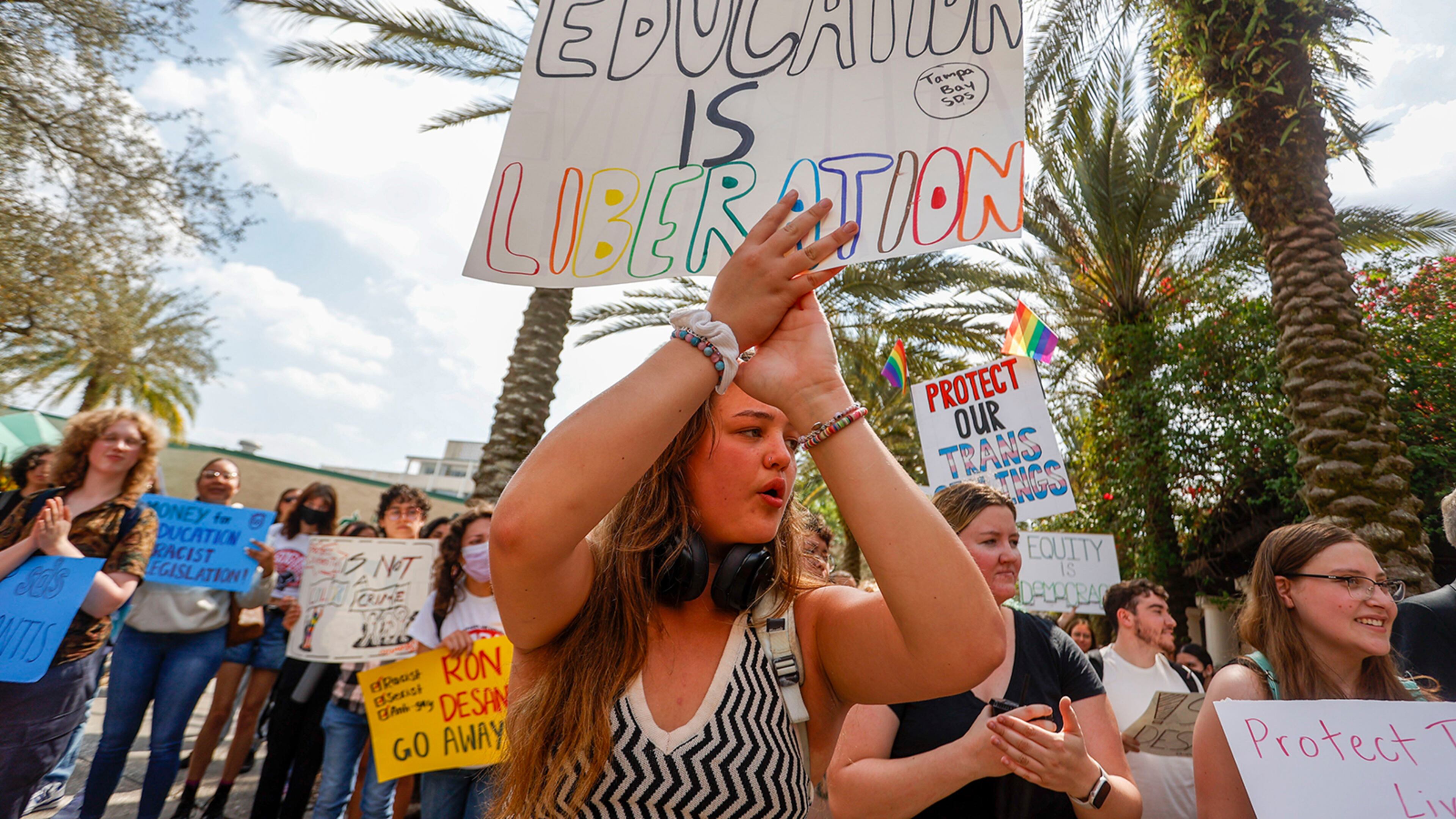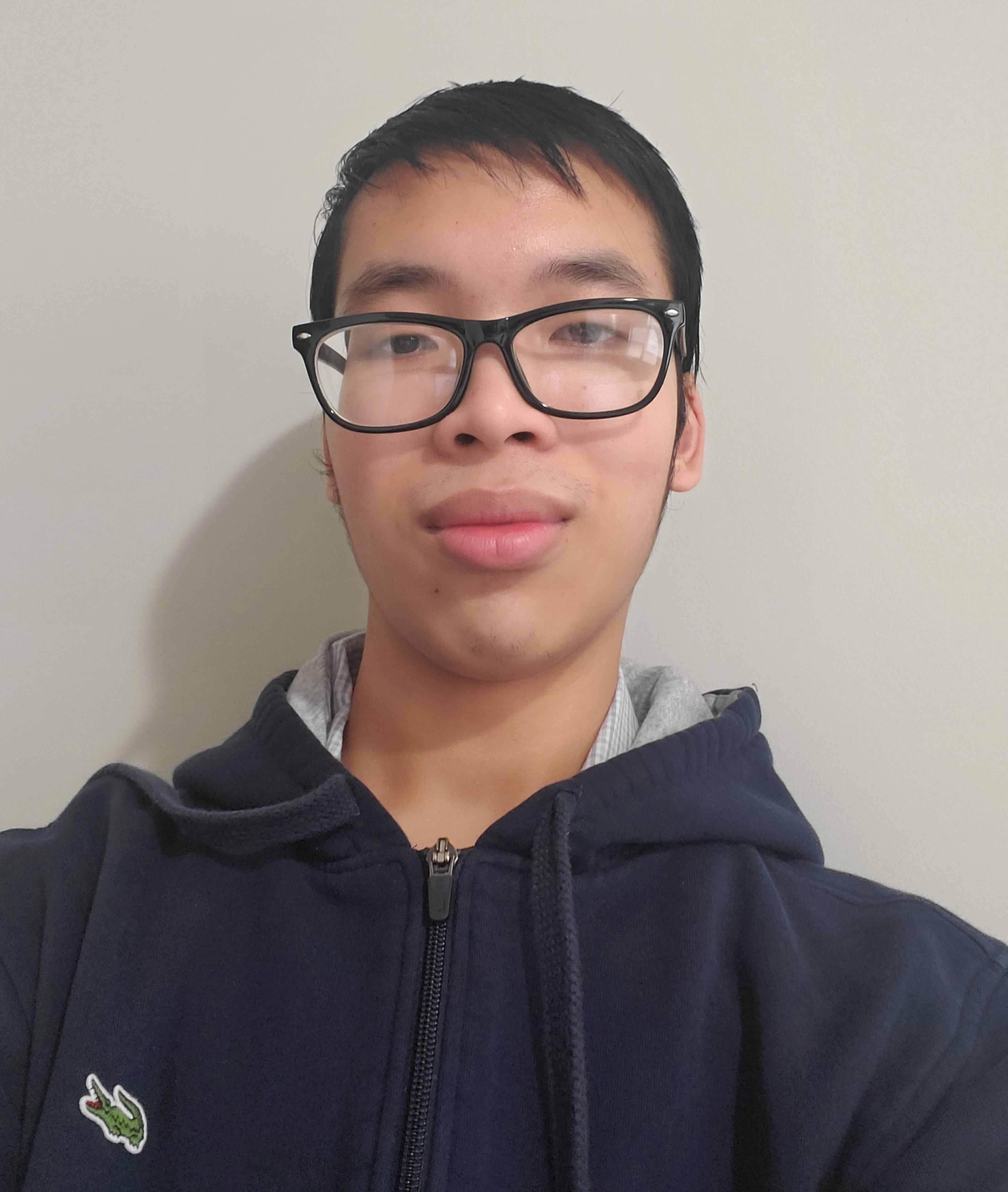Gwinnett student: Don’t narrow our worldview as Florida has done

David Phan is a senior at the Gwinnett School of Mathematics, Science, and Technology and will graduate in May. He plans to go to college and major in linguistics.
In this guest column, Phan says the education laws being passed in Georgia and other states are not based on a reality, but on political efforts to control the classroom narrative.
By David Phan
Get your eyes checked, Georgia. The culture war does not exist. And schools do not indoctrinate.
The rhetoric of our time makes us believe so, but we should remain skeptical. Because of our inherent human nature, we love to discover and make patterns; we invent models that cleverly simplify dauntingly complex concepts, and we turn complex arguments into lines of opinions to help us decide where we stand on each matter, but it all comes at a dangerous cost. This sort of one-dimensional thinking makes us lose intellectual diversity, as we have lost the nuances that individualized opinions.

Take a look at our neighbor down south. Florida Gov. Ron DeSantis, dubbed the “Education Governor,” has threatened to ban the College Board’s new AP Black history course that’s in the first year of a two-year pilot and has attacked “identity politics” in the classroom. A principal of a Florida public charter school was forced out recently for failing to notify parents of sixth graders that teachers would show kids photos of Michelangelo’s statue “David” during a Renaissance art lesson.
I implore my fellow Georgians: Let us not become Florida. Let us stop adopting similar laws that denigrate teachers and intellectually impair students. We have seen a surge of legislation in Georgia that seeks to insulate K–12 schooling and empower parents at the expense of restricting resources to students.
Last year, Gov. Brian Kemp signed a trio of troubling laws seeking to control and limit what students see. Senate Bill 226 expedites the process for removing books and other content seen as “harmful to minors by a parent.” House Bill 1084 prohibits the teaching of “divisive concepts,” thus limiting how K-12 teachers can talk about race and racism. House Bill 1178 — the “Parents’ Bill of Rights” — guarantees parent access to classroom “instructional materials.” It encourages parents to challenge instructional material on the basis of “the right to direct the upbringing and the moral or religious training of his or her minor child.” Parents, who before argued that the “Harry Potter” series should not be taught in classrooms, can now legitimately claim wizardry conflicts with their religion. This will lead more parents to contend that any books with content they don’t like must be bad books.
This year, Senate Bill 88, which prohibits teachers from any conversations with students about sexual orientation or gender identity other “than the child’s biological sex” without parental permission, stalled in committee but could return next year.
The laws increasingly make schools vulnerable to political pressures. The laws open doors to many interpretations, so parents in a vocal minority can easily challenge the content that teachers assign their students and have that content excised because teachers would rather avoid making a legal fuss over the censorship.
Why should these few parents have the ability to remove books (and effectively conversations) about racism from the classroom and books that help queer kids affirm their sexual orientations? Why should they have the power to force kids, whether their own or not, to use a narrow lens of the world, prescribed with faulty correction?
Through school, students grow the most when they learn from their peers and teachers while contrasting those experiences with their private lives. They form identities rightfully their own, avoidant of the sole instruction of anyone, including their parents. The social synthesis of learning from home and school lets them continually swap their old intellectual glasses for new and improved pairs.
Can that occur when teachers become afraid of speaking to students about where they honestly stand on divisive topics and students become afraid to do the same because they fear punishment from their parents?
Recently, my English teacher assigned me to read famous intellectuals’ opinions on education, specifically that of Webster, Baldwin, Thoreau, and Emerson. Through those readings, I learned about the vocal opinions of a chosen few, about how they argued against the existing educational methods of America, such as how teachers did little to teach kids domestic and local affairs relevant to their specific locations, the history outside of white people’s history, and with love over military discipline.
I did not feel indoctrinated but rather informed about the various perspectives on educational theory. As a student, I am taught to think critically and can assess those opinions are just that — opinions. Whatever I agree or disagree on is up to me to decide.
In American politics, Democrats and Republicans are now pitted against one another on a fierce battlefield where there is less and less middle ground. Members of both parties have grown to hate each other due to nothing more than their labels. In fact, a Pew Research Center 2022 survey discovered that over half of Republicans (72%) and Democrats (63%) view the opposing side as immoral.
Such polarization leads to an unwillingness to hear out differing points of view. If I am not given the opportunity to hear different points of view, or, if the views are diluted to be made vague, I am denied the ability to even have a comprehensive opinion on the matter, so I will end up caring less about it.
Teachers must be able to connect their subjects to social issues and current events so the knowledge they impart is relevant and applicable to their pupils, thus retaining their intellectual interest. Do not stop learning from being both personal and speaking to the issues of our times, Georgia. Repeal the education bills you passed last year and reconsider any in the future that infringe on a teacher’s ability and a student’s right to learn in a way that is relevant and personal.
As a student soon to leave for college and with 12 years’ experience in your public education system, I urge you to remove the curricular restrictions you are forcing on teachers and students.

